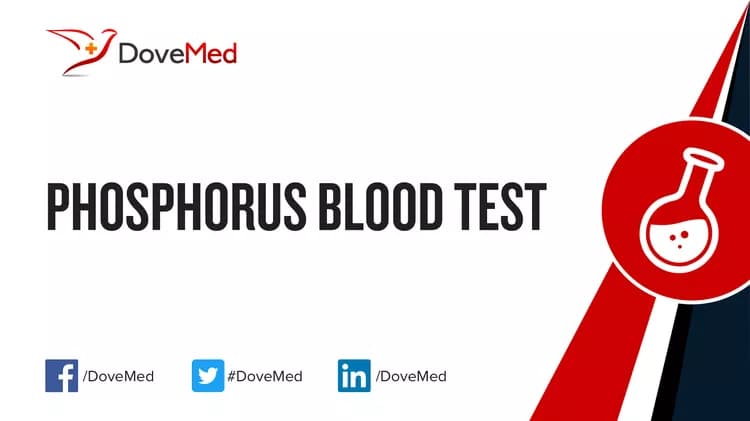What are the other Names for this Test? (Equivalent Terms)
- Inorganic Phosphate Test
- P Test
- PO4 Test
What is Phosphorus Blood Test? (Background Information)
- Phosphorus is a mineral present in dairy products, meat, beans, nuts, and peas. It plays a very important role in energy storage and bone growth. Phosphorus also helps in the proper functioning of muscles and nerves, and maintains the body’s acid-base balance
- The Phosphorus Blood Test measures the amount of inorganic phosphate in blood. This is usually ordered, when abnormalities of calcium or kidney disorders are present
What are the Clinical Indications for performing the Phosphorus Blood Test?
Following are the clinical indications for performing a Phosphorus Blood Test:
- Most commonly to investigate symptoms of abnormal calcium (such as muscle weakness, cramping, tingling, or bone problems), or as a follow-up to calcium abnormalities detected during testing
- Investigation of kidney problems or gastrointestinal disorders
- Evaluation of acid-base disturbances
- Symptoms of phosphorus abnormalities: Such symptoms appear only with extreme changes in the phosphate levels and include confusion or weakness, with severe deficiency and muscle cramping or seizures, due to a severe excess of phosphorus
How is the Specimen Collected for Phosphorus Blood Test?
Following is the specimen collection process for Phosphorus Blood Test:
Sample required: Blood
Process: A blood sample is drawn through a needle inserted into the vein (arm).
Preparation required: Usually, no special preparation is needed prior to the test.
What is the Significance of the Phosphorus Blood Test Result?
The normal values, called the reference range for phosphate, may vary slightly from lab to lab. Hence, most lab reports come with a reference range, which is used in that particular centre. A physician interprets the results based on the reference values provided.
A standard reference range in wide use is:
Reference range: 2.4-4.1 mg/dL (milligrams per deciliter)
Some conditions that cause decreased levels of phosphorus (hypophosphatemia) include:
- Malnutrition
- Vitamin D deficiency
- Hyperparathyroidism (increased functioning of parathyroid gland)
- Increased levels of calcium (hypercalcemia)
Some conditions that cause increased levels of phosphorus (hyperphosphatemia) include:
- Kidney failure
- Hypoparathyroidism (decreased functioning of parathyroid gland)
- Diabetic ketoacidosis
- Excess vitamin D
The laboratory test results are NOT to be interpreted as results of a "stand-alone" test. The test results have to be interpreted after correlating with suitable clinical findings and additional supplemental tests/information. Your healthcare providers will explain the meaning of your tests results, based on the overall clinical scenario.
Additional and Relevant Useful Information:
- Phosphorus levels in prepackaged foods and soft drinks are generally high. It is believed that this may contribute to dietary excess of phosphorus
Certain medications that you may be currently taking may influence the outcome of the test. Hence, it is important to inform your healthcare provider, the complete list of medications (including any herbal supplements) you are currently taking. This will help the healthcare provider interpret your test results more accurately and avoid unnecessary chances of a misdiagnosis.
Related Articles
Test Your Knowledge
Asked by users
Related Centers
Related Specialties
Related Physicians
Related Procedures
Related Resources
Join DoveHubs
and connect with fellow professionals


0 Comments
Please log in to post a comment.